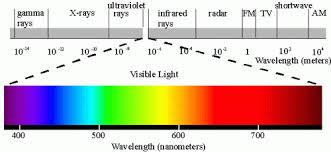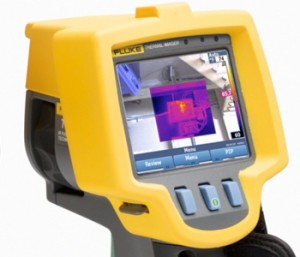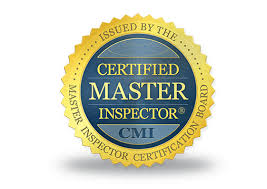FREE Thermal Imaging with Infrared Camera
Barrie Home Inspections provides Free Thermal Imaging Scan with every home inspection. We scan all exterior walls and ceilings looking for missing insulation, hidden moisture and any electrical hot spots. Keeping your home warm in our Canadian climate can be an expensive expense. People in the country often use fireplaces or other wood burning appliances to keep their homes warm in the winter. The insulation of the house is an important factor in reducing energy costs associated with your home comfort.
A house with poor insulation allows heat to rapidly escape forcing the people to pay every increasing costs to keep their homes warm. If we calculate the increase in heating (or cooling) costs over a span of months, the numbers add up quickly. We recently provided Thermal Imaging Scan of a rural home where the home owners were concerned about their Great Room always being colder than the rest of the house. Thermal Imaging exposed a complete upper wall that had never been insulated by the builder, over 10 years of needless heat loss caused by a builders error.
Thermal imaging cameras can easily identify areas where heat is escaping the most. Once the leak area is identified, it can be fixed in order to save on your energy bills.
What is Thermal Imaging ?
Infrared thermography (IRT), thermal video and thermal imaging, is a process where a thermal camera captures and creates an image of an object by using infrared radiation emitted from the object in a process, which are examples of infrared imaging science. Thermographic cameras usually detect radiation in the long-infrared range of the electromagnetic spectrum (roughly 9,000–14,000 nanometers or 9–14 ?m) and produce images of that radiation, called thermograms. Since infrared radiation is emitted by all objects with a temperature above absolute zero according to the black body radiation law, thermography makes it possible to see one’s environment with or without visible illumination. The amount of radiation emitted by an object increases with temperature; therefore, thermography allows one to see variations in temperature. When viewed through a thermal imaging camera, warm objects stand out well against cooler backgrounds
 The Thermal Spectrum – A rainbow is an example of a continuous spectrum. Most continuous spectra are from hot, dense objects like stars, planets, or moons. The continuous spectrum from these kinds of objects is also called a thermal spectrum, because hot, dense objects will emit electromagnetic radiation at all wavelengths or colors. Any solid, liquid and dense (thick) gas at a temperature above absolute zero will produce a thermal spectrum. A thermal spectrum is the simplest type of spectrum because its shape depends on only the temperature. A discrete spectrum is more complex because it depends on temperature and other things like the chemical composition of the object, the gas density, surface gravity, speed, etc. Exotic objects like neutron stars and black holes can produce another type of continuous spectrum called “synchrotron spectrum” from charged particles swirling around magnetic fields.
The Thermal Spectrum – A rainbow is an example of a continuous spectrum. Most continuous spectra are from hot, dense objects like stars, planets, or moons. The continuous spectrum from these kinds of objects is also called a thermal spectrum, because hot, dense objects will emit electromagnetic radiation at all wavelengths or colors. Any solid, liquid and dense (thick) gas at a temperature above absolute zero will produce a thermal spectrum. A thermal spectrum is the simplest type of spectrum because its shape depends on only the temperature. A discrete spectrum is more complex because it depends on temperature and other things like the chemical composition of the object, the gas density, surface gravity, speed, etc. Exotic objects like neutron stars and black holes can produce another type of continuous spectrum called “synchrotron spectrum” from charged particles swirling around magnetic fields.
Thermal Imaging Inspections
Thermal Imaging is a non-invasive, technology-based method that allows home and commercial building inspectors to quickly and accurately identify defects located in a building including:
- Air Leakage
- Insulation Defects
- Moisture Problems
- Roofing Problems
- Electrical Issues
- HVAC Problems & More
Building Envelope Inspections
Barrie Home Inspections is certified by the International Association of Certified Home Inspectors (InterNACHI) and have undergone a rigorous training and education process. Our specialty is thermography which allows us to see thermal differences in the building envelope. This infrared based technology measures surface temperatures by using thermal imaging cameras. The temperature readings are then processed into a visual display that shows temperature differences within the walls of the building. Our infrared inspections are non-invasive, and they allow us to determine if there are any defects in the building envelope.
Thermographic inspections detect structural damage and other inefficiencies in buildings. 
Thermography allows for detecting hidden issues inside the walls of your home or business, like water damage or mold growth, before they can cause significant damage. This kind of inspection relies on a infrared camera to detect temperature fluctuations in the surfaces of your walls, measuring temperate changes at close range.
For a Thermal Imaging Inspection to be accurate a minimum of 20 degrees difference, from outside to inside is typically required. Moisture or missing insulation will usually show up regardless of temperature in or outside the home.
Barrie Home Inspections was the first Home Inspector in Simcoe County to offer Thermal Imaging Inspections. We do not charge extra for providing Infrared Scanning during any home inspection. We already have the tools and do not try and charge extra fees for providing this service.
If your Home Inspection does not include Thermal Imaging what are you missing?
Call Roger today for Information or answers to your Questions. Roger 705-795-8255
WETT Certified inspections of wood burning appliances is available during Home Inspection for only $75.00 ( a $100.00 savings ) visit Orillia WETT Inspections for more information
